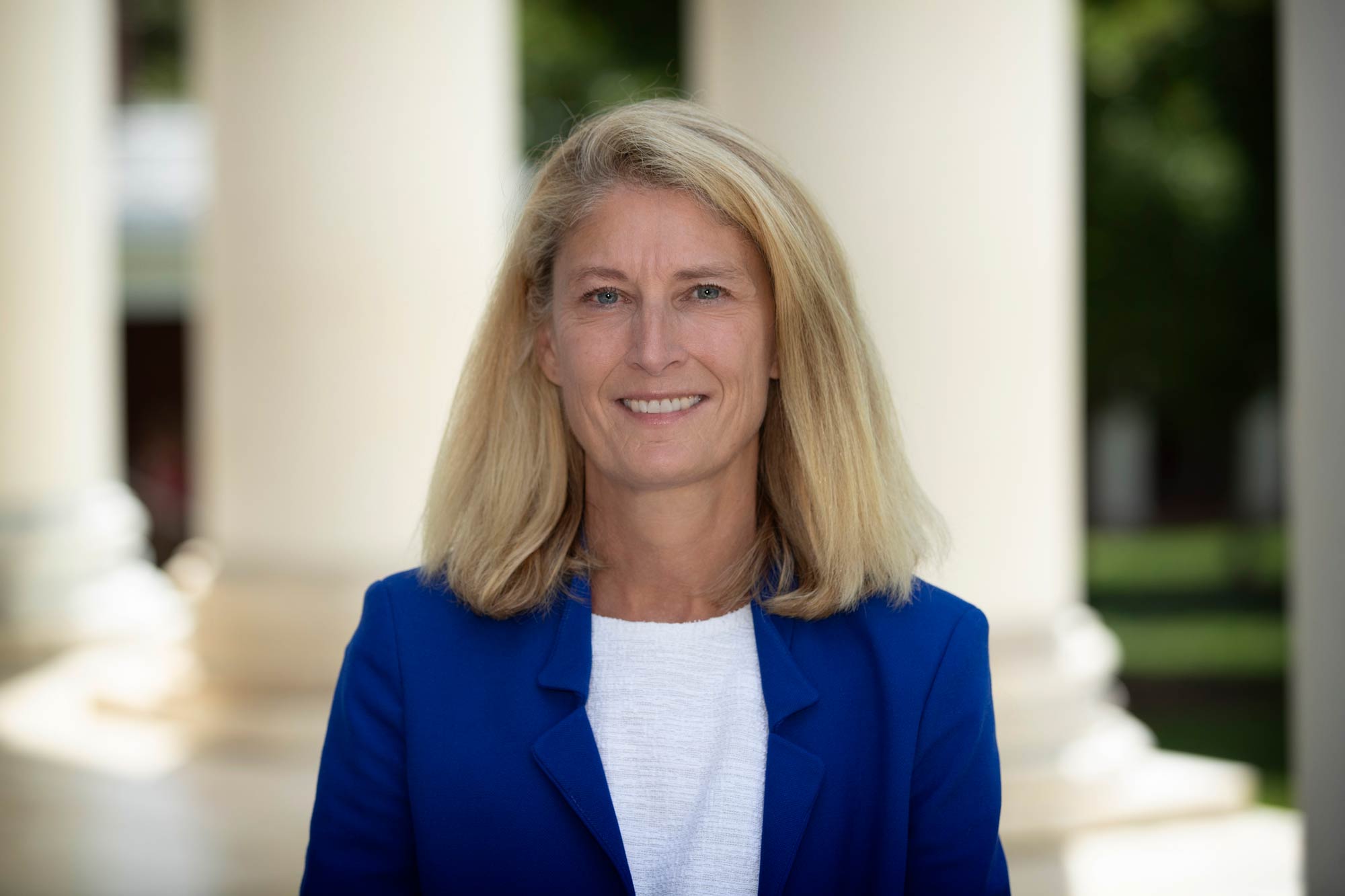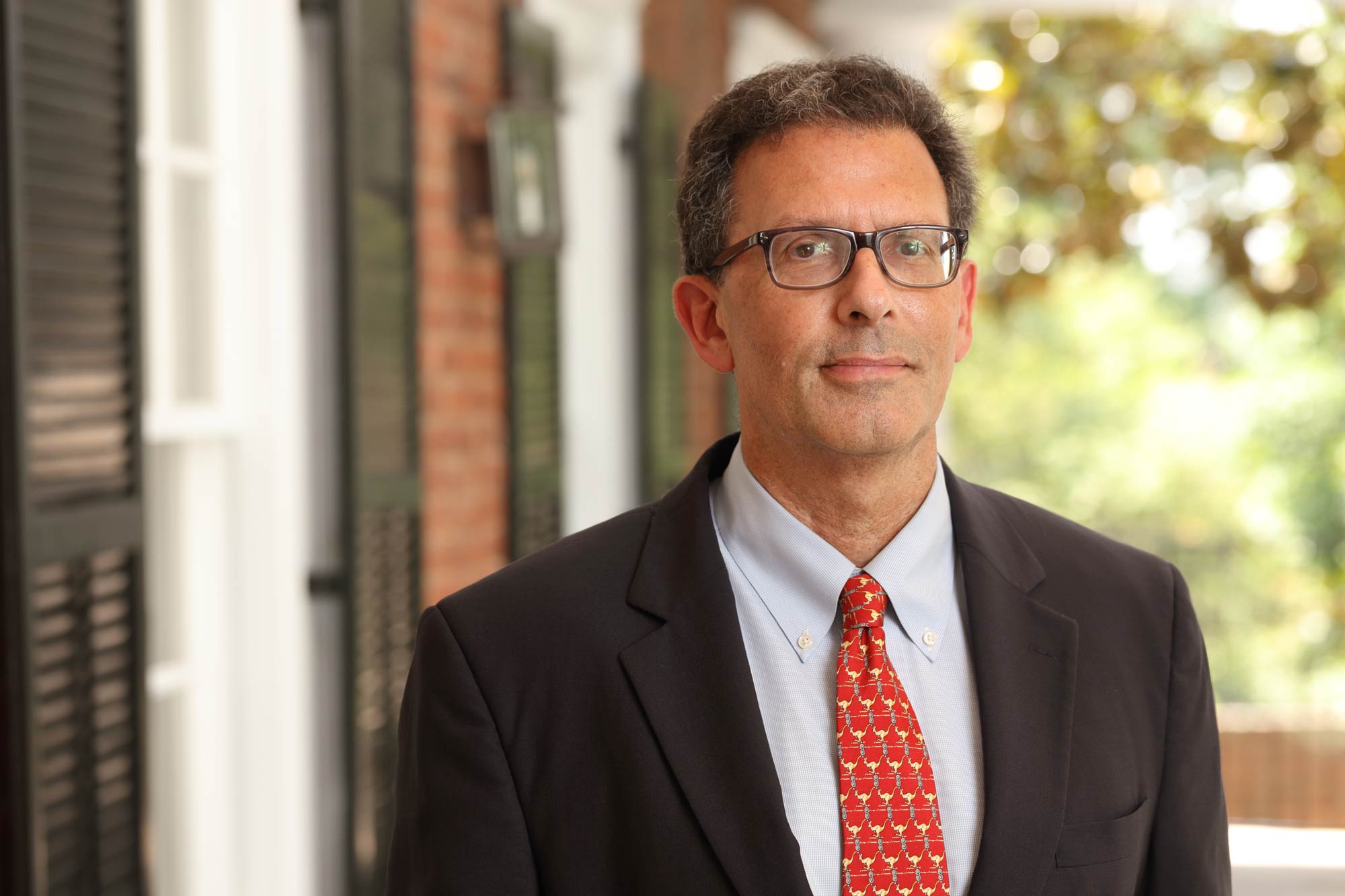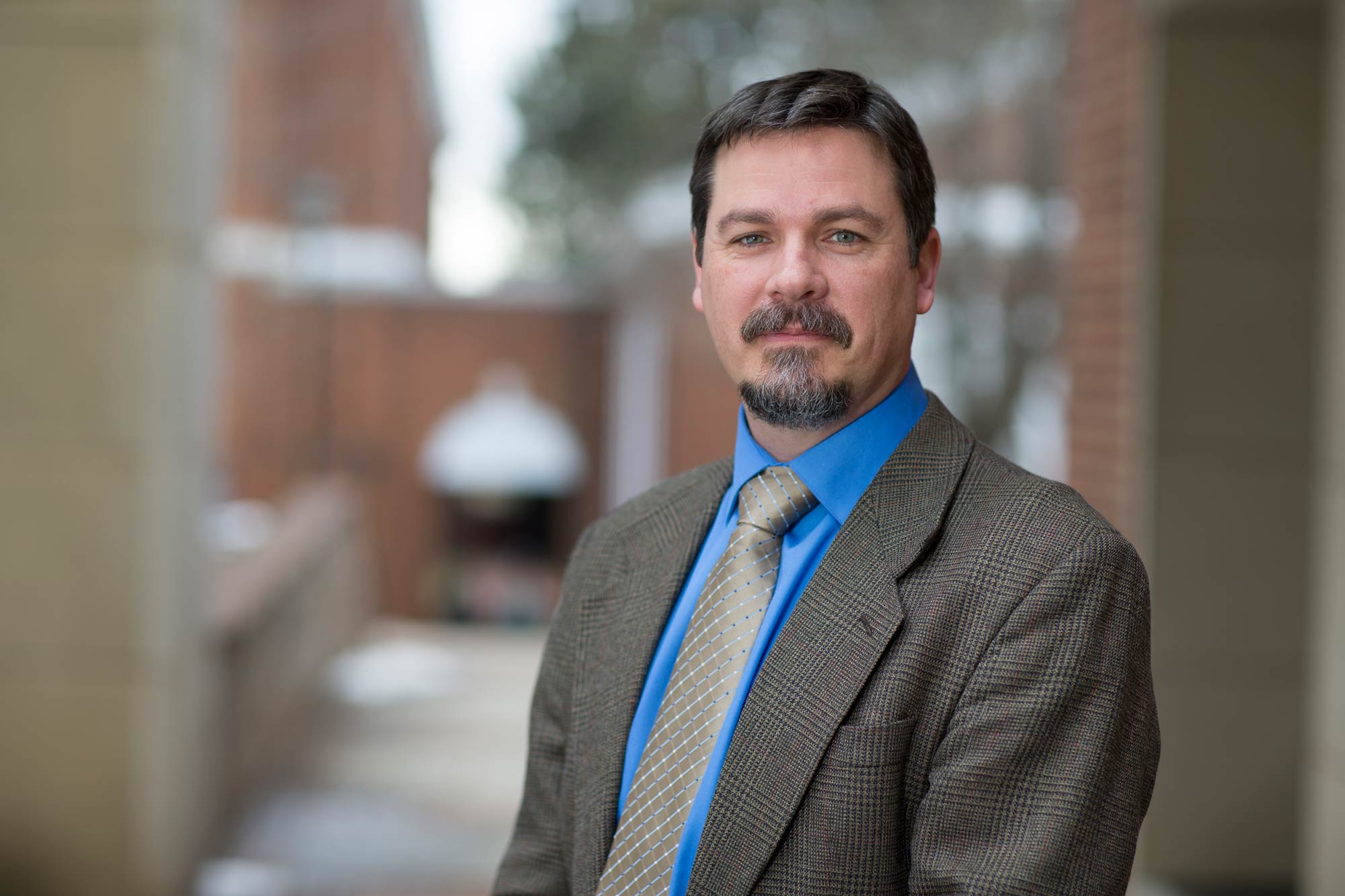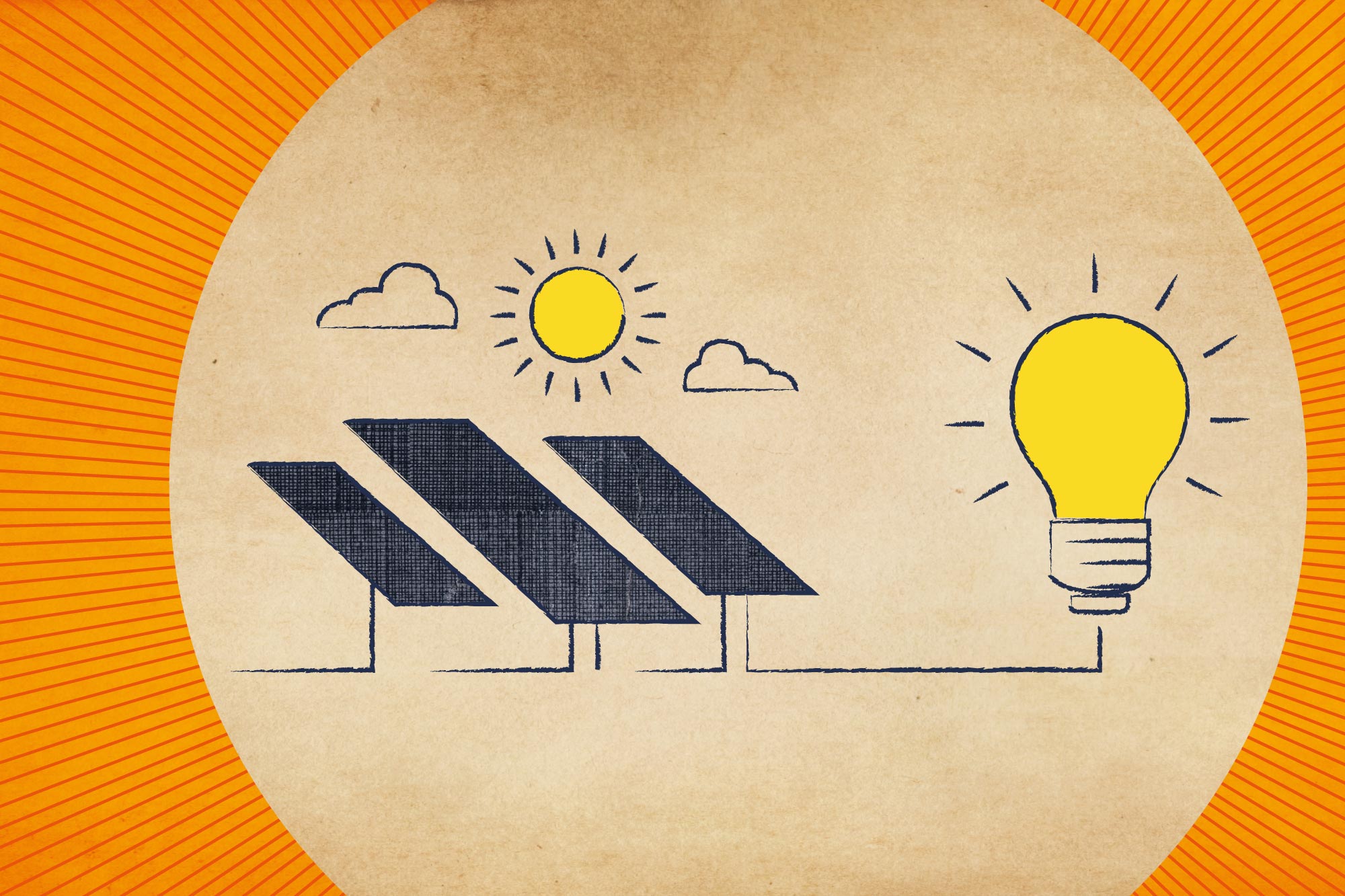What if you and your neighbors could work with University of Virginia experts to solve the climate-related problems in your town? What if clean energy solutions created in UVA labs turned into technologies to be shared with the world?
Developing cutting-edge research and putting it into action is motivating the University’s $60 million investment in a collaborative approach to climate change.
Through UVA’s ambitious Grand Challenge Research Initiatives, UVA researchers will pursue two avenues focused on environmental resilience and sustainability: researching and perfecting clean energy, and helping local communities develop best practices for responding to climate-driven challenges.
“These research teams are planning an exciting two-pronged approach,” Vice President for Research Melur K. “Ram” Ramasubramanian said. “On the one hand, we are focused on empowering local decision-makers with knowledge and resources. On the other, we are developing advanced clean-energy technologies by leveraging our scientific expertise in engineering and chemistry. We are investing in additional faculty to further strengthen teams and in state-of-the-art analytical and computational tools to make significant advances.”
Ramasubramanian, Provost Ian Baucom and Vice Provost for Academic Initiatives Megan Barnett are spearheading the Grand Challenges, which are part of the University’s 2030 “Great and Good” Plan, a set of strategic initiatives focused on service through collaboration.
“The Grand Challenges are part of our commitment to invest in research that will address some of the most challenging contemporary issues of our time,” UVA President Jim Ryan said. “As described in our 2030 Strategic Plan, we will engage scholars, researchers and practitioners from across the University, each of whom will bring new perspectives to the work, and we will make sure the results are widely distributed for maximum impact. I’m grateful to all those at UVA whose work will make the world a better place.”
Led by the UVA Environmental Resilience Institute, the community-based effort will include faculty from schools across the University in a newly formed Climate Collaborative. The group aspires to connect University researchers with policymakers, local officials and business leaders, as well as everyday citizens.

“UVA is distinctive in its deeply collaborative approach – bringing teams together from the sciences, professional schools, humanities and arts to understand climate impacts and work with external partners to create solutions,” said Karen McGlathery, director of the institute and professor of environmental sciences. “The new investments build on this strong foundation to both greatly advance our scholarship and its impact.”
The Climate Collaborative plans to imbed four to six research teams in specific localities dealing with climate-related challenges. The local communities – and people everywhere – will benefit from research being conducted simultaneously on Grounds.
“Climate change is a global phenomenon, but people experience it differently depending on where they live and work,” McGlathery said. “We want to make sure that our research is relevant to the community and that it will be translated into solutions to the challenges specific to that place.”
Initial sites will be located in Virginia and other states, and internationally. The model will be scaled up over time, aiming to one day serve as a global model for partnerships between universities and communities committed to solving environmental problems.
“It’s important that we pursue ‘co-production’ of knowledge with the communities,” said Larry Band, Ernest H. Ern Professor of Environmental Sciences and a professor in the Department of Engineering Systems and Environment. “New findings will leverage community members’ experience in their environments and their priorities. Ultimately, the climate solutions will be developed to benefit the communities, and they will need to be involved in their design and implementation.”

Funds will also support additional physical space near Grounds for interdisciplinary collaborations, and for hosting Environmental Practitioner Fellows from a wide range of areas, including sustainability entrepreneurs, former heads of government agencies, community activists and artists.
Developing clean energy will be spearheaded by a second team of researchers from Engineering and Arts & Sciences, with an eye toward scalable solutions. Solar energy is arguably the leading carbon-neutral source that can supply the global demand for energy, but it must be converted to useable and storable forms of energy through chemical and molecular processes known as catalysis.
The University has faculty members focusing on catalysis in several departments, and the hire of four to six new faculty members will build on this strength and bring crucial additional new expertise. The expanded team will implement important new infrastructure to support state-of-the-art research efforts and enable the translation of fundamental knowledge to projects that have potential scalability.
T. Brent Gunnoe, Commonwealth Professor of Chemistry, explained that “access to inexpensive and carbon-neutral energy is one of society’s most critical challenges, and the conversion of solar energy into fuels and chemicals that are currently derived from fossil resources is one viable approach. Realization of this ambitious vision requires fundamental scientific and engineering advancements in catalysis, and ultimately, translation of these advancements into commercial processes. Meaningful progress requires a multi-disciplinary team that can bring different expertise to bear on the challenge.”

The University also plans to provide seed funding for clean energy research collaborations and develop an Environmental Entrepreneurship Initiative to help launch nonprofit and for-profit ventures, and strengthen the regional clean energy entrepreneurship ecosystem.
“By sharing UVA’s innovations, we’ll bring discovery into action,” Baucom said. “We are focusing both on fundamental research and on translation – creating new knowledge and policy, technology and social innovations. Our teams will bring together the research expertise of many disciplines with the lived expertise of the community and the latest in cutting-edge methods and equipment. The final step forward will be ensuring that the hard work has the greatest benefit for the public good.”
The Grand Challenges Fund is providing $50 million of the total for the environmental initiative, with the partnering schools adding at least $10 million more. As part of the investment, the University will provide startup funding for up to 14 new faculty members in multiple schools and develop an interdisciplinary post-doctoral program, emphasizing mentoring the next generation of environmental leaders while promoting diversity, equity and inclusion in its hires.
Overall, the University identified five priorities that its Grand Challenges research initiatives should address as part of the 2030 Plan. In addition to environmental resilience and sustainability, they are democracy; the brain and neuroscience; precision medicine and health; and digital technology and society.
The challenges kicked off in June of last year with the $100 million investment that created the Karsh Institute of Democracy at UVA. Enhanced by donations from philanthropic alumni Martha and Bruce Karsh, the institute builds on UVA’s strength in democracy and facilitates democracy-related collaborations across Grounds and beyond. Investments in the brain and neuroscience were also announced at the June Board meeting.
In August, then-Provost Liz Magill, Ramasubramanian and Barnett partnered with the Environmental Resilience Institute, as well as the UVA Brain Institute, to begin seeking input from the UVA community about new research they’d like to see become a reality.
For information about Grand Challenge collaborations, contact the Office of the Executive Vice President and Provost, the Office of the Vice President for Research or the Environmental Resilience Institute.
Media Contact
University News Senior Associate University Communications
williamson@virginia.edu (434) 924-1321
Article Information
April 16, 2024




